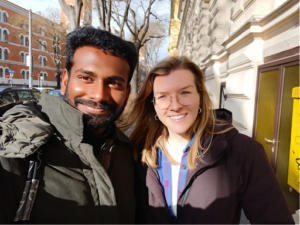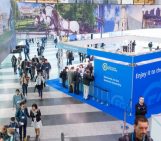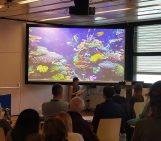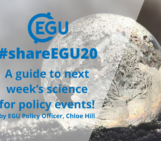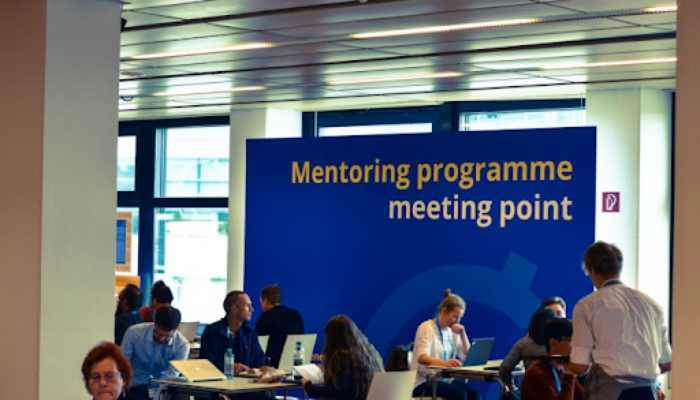
You have been matched!
I take a deep breath and click to open the message. Two women from Iran, a Master and a PhD student. Their research interests match mine: geohazards, geomorphology and modeling. I’m filled with pure joy. Being an Iranian woman myself, doing science outside of Iran for over two decades, I feel I am finally returning home. Carrying a backpack filled with knowledge and experiences, I am eager to share, learn and connect. I am an EGU mentor.
Welcome to the EGU Mentoring Program. The program is offered each year during the EGU General Assembly and aims to support first-time conference attendees (mentees) by pairing them with experienced mentors. Despite being an early career researcher and having several mentors of my own, I know becoming a mentor myself comes with a long list of benefits and can play an important role in my personal and professional growth.
In this blog, I ask a few former EGU General Assembly mentors to share their experiences with the EGU Mentoring Program. I hope that their stories will inspire you to get involved with the program. Please register here to join the program. The deadline is 25 March for mentees and 7 April for mentors.
Jenny Turton, Senior Advisor, Arctic Frontiers, Tromsø, Norway
Back in 2019, I was unsure whether to sign up to be a mentor. I had attended two EGU General Assemblies (GAs) previously, which is the only criteria to mentor, but as an Early Career Scientist (ECS) and only a few years after my PhD, I didn’t know whether I had the skills or informatio
n to be a mentor. However, I signed up and have been a mentor at every GA since. Many of the mentees are masters students or early in their PhD, which means that any experience in post-study life can be helpful for the mentees. But in many cases, they just need guidance on how to get through their first EGU experience, and continuing the mentorship afterwards is the choice of you and your mentee. I really enjoy being able to help first-time attendees navigate the opportunities at the conference and point out good places for food, networking events and introduce them to other people in my network. Some mentees I have continued to speak to digitally or via email over the years (e.g Adhithiyan in my picture below) and it was an important experience for me to gain skills in supervision and networking. It was also something I could talk about in interviews for my job outside of academia. I recently met up with my mentee in Vienna where he has recently moved for work and I was visiting for a conference.
David Ferná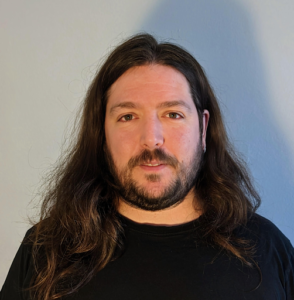 ndez-Blanco, Deputy EGU-Wide Representative of Early Career Scientists
ndez-Blanco, Deputy EGU-Wide Representative of Early Career Scientists
Mentoring younger researchers at the EGU General Assembly is an incredibly rewarding activity. Through the Mentoring Program, I have had the opportunity to share my experiences and knowledge, and offer my mentees guidance and support as they navigated the conference. I find it particularly inspiring to witness their enthusiasm and passion for their research, and to help open the way for them to form valuable connections. I believe this is an essential part of fostering a strong and supportive scientific community.
Ellen Wohl, Geosciences Professor, Colorado State University, U.S.A.
Mentoring is one of the most rewarding aspects of my work. I view it as a collaboration in which I am sharing my experience and insights into how to develop and investigate research q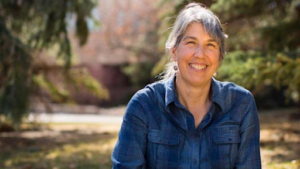 uestions in geosciences. I enjoy watching younger colleagues grow as scientists while they gain experience and confidence. This collaboration is a two-way street. I benefit from the energy and enthusiasm of my mentees, and they provide new insights and perspectives that I would not develop by myself. Ideally, we jointly create an intellectual synergy that helps each of us. I also enjoy the ‘lighting up’ that I see in a younger colleague when they gain the confidence to apply their newly developing skills in interpreting disparate field observations, successfully designing physical experiments, or using statistical analyses to reveal new relationships. My field-based research has given me wonderful experiences and a delightful career and I derive great satisfaction from watching younger colleagues develop the abilities to shape their own satisfying career path.
uestions in geosciences. I enjoy watching younger colleagues grow as scientists while they gain experience and confidence. This collaboration is a two-way street. I benefit from the energy and enthusiasm of my mentees, and they provide new insights and perspectives that I would not develop by myself. Ideally, we jointly create an intellectual synergy that helps each of us. I also enjoy the ‘lighting up’ that I see in a younger colleague when they gain the confidence to apply their newly developing skills in interpreting disparate field observations, successfully designing physical experiments, or using statistical analyses to reveal new relationships. My field-based research has given me wonderful experiences and a delightful career and I derive great satisfaction from watching younger colleagues develop the abilities to shape their own satisfying career path.
Alexander Beer, Post-doc, University of Tübingen, Germany
When I was a student planning to attend the EGU annual conference, I recall being lost in the vast amount of content and options. Since I found my way through this jungle, I have been sharing my experien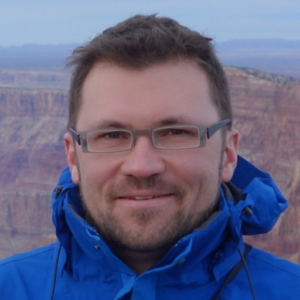 ces and knowledge with students attending the conference in order to help them make the most of the opportunities EGU offers. I, therefore, joined the EGU Mentoring Program to become a mentor, especially during the pandemic when the program was fully online. Based on my experience with the mentees, I see that they (as I was) are overloaded with the program. To help them, I provide guidance with planning their conference schedule, where to go and how to approach people. It has been a rewarding experience to see my mentees benefitting from the opportunity to present their work and widen their network and academic horizon.
ces and knowledge with students attending the conference in order to help them make the most of the opportunities EGU offers. I, therefore, joined the EGU Mentoring Program to become a mentor, especially during the pandemic when the program was fully online. Based on my experience with the mentees, I see that they (as I was) are overloaded with the program. To help them, I provide guidance with planning their conference schedule, where to go and how to approach people. It has been a rewarding experience to see my mentees benefitting from the opportunity to present their work and widen their network and academic horizon.
Clara Burgard, Postdoctoral Researcher, Université Grenoble Alpes, France
I was an EGU mentor twice, once during vEGU21 which was held entirely online and once during the hybrid EGU22. While I was “only” a postdoc in 2021, I had already attended two in-person and one virtual General Assemblies. I was, therefore, used to the huge size of the conferenc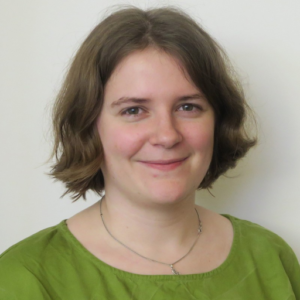 e, knew how to make social connections at the conference, how to decide on relevant sessions to visit, and what to pay attention to for a pleasant experience during this packed week. My mentees were master and PhD students who didn’t want to approach their first EGU General Assembly alone. I met with them a week before the conference to discuss expectations, give the kind of tips and tricks that I would have liked to have before my first EGU conference, and decide on how to interact during the week. Over the past seven years, EGU has given me many opportunities to meet other interesting scientists from all career stages. As a mentor, my aim is to help early career scientists take advantage of all the opportunities EGU has to offer and use them to grow professionally like I have done. As a bonus, I got to know curious early career scientists, whom I hope to meet again in the future!
e, knew how to make social connections at the conference, how to decide on relevant sessions to visit, and what to pay attention to for a pleasant experience during this packed week. My mentees were master and PhD students who didn’t want to approach their first EGU General Assembly alone. I met with them a week before the conference to discuss expectations, give the kind of tips and tricks that I would have liked to have before my first EGU conference, and decide on how to interact during the week. Over the past seven years, EGU has given me many opportunities to meet other interesting scientists from all career stages. As a mentor, my aim is to help early career scientists take advantage of all the opportunities EGU has to offer and use them to grow professionally like I have done. As a bonus, I got to know curious early career scientists, whom I hope to meet again in the future!
Sebastian Mutz, Lecturer, University of Tübingen, Germany
Last year, I was made aware of EGU’s Mentoring Program. Out of a sense of academic responsibility and simple curiosity, I decided to sign up as a mentor. I had the pleasure of meeting young scientists from very di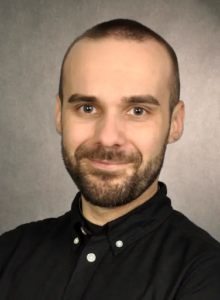 fferent backgrounds and academic settings. Judging by my experience and the experience of other mentors I talked to, I think the program is a good way to learn about the various challenges, expectations, and motivations of different individuals in academia – all while helping to give junior researchers a bit of guidance. Frankly, I didn’t know what exactly to expect and what was expected of me, but that’s probably a good place to start for a mentor. Why? Because the ways in which mentors may be able to guide their mentees will strongly depend on their individuality, academic background, set of skills, and personal experiences thus far. You just figure this out together. In the end, I probably helped out more than I initially thought I could. Through my experience alone, I was able to offer something. And if I couldn’t address my mentees’ primary expectations or needs, I always knew someone who could, so I would make an introduction.
fferent backgrounds and academic settings. Judging by my experience and the experience of other mentors I talked to, I think the program is a good way to learn about the various challenges, expectations, and motivations of different individuals in academia – all while helping to give junior researchers a bit of guidance. Frankly, I didn’t know what exactly to expect and what was expected of me, but that’s probably a good place to start for a mentor. Why? Because the ways in which mentors may be able to guide their mentees will strongly depend on their individuality, academic background, set of skills, and personal experiences thus far. You just figure this out together. In the end, I probably helped out more than I initially thought I could. Through my experience alone, I was able to offer something. And if I couldn’t address my mentees’ primary expectations or needs, I always knew someone who could, so I would make an introduction.
We thank our past mentors for their time and support in bringing the Mentoring Program to life. If you find yourself inspired by their experiences and would like to sign up as a mentor or mentee yourself, you still can! See more information here.

